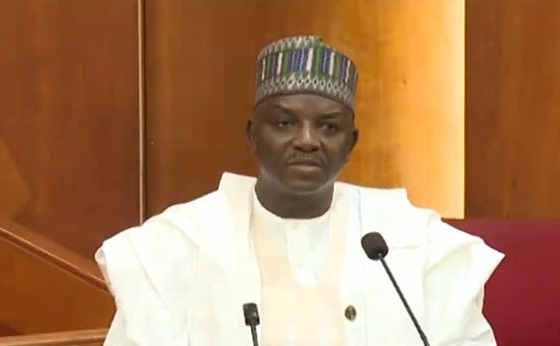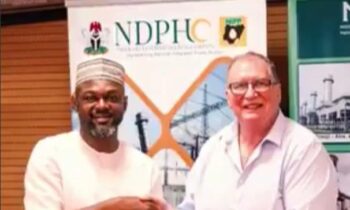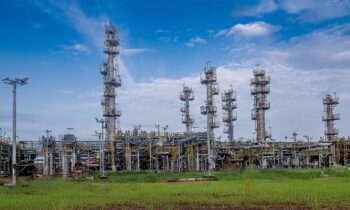
The federal government yesterday attributed the delay in executing the $5.8 billion Mambilla hydroelectric power project, expected to add 3,050 MW to the nation’s electricity output, to court cases being pursued by its former con contractor.
Sale Mamman, Minister of Power, said in a statement issued in Abuja that the government was finalising settlement terms leading to an amicable arbitration, so that the project could take off.
Chiedu Ugbo, Managing Director of the Niger Delta Power Holding Company (NDPHC) also yesterday, stated that the gas shortage had crippled the operations of all power plants in the South-west.
Mamman, in the statement signed by his Special Adviser on Media and Communications, Aaron Artimas, told the management team of the Chinese firm handling the project, including the Vice President of the China Gezhouba Group International Engineering Company, Mr. Yuan Baoy, that despite the delay in the take-off of the project, efforts were being made to ensure that the legal impediment did not derail the nation’s efforts at boosting public power supply.
He added that President Muhammadu Buhari has also directed the Nigerian Sovereign Investment Authority (NSIA) to review the progress so far made on the project and carry out “value engineering” in pursuit of optimised implementation and delivery.
He said: “The government investment outfit has been given three months to submit a comprehensive report detailing the findings of the value engineering and also provide recommendations to move the project forward.”
International Engineering Company, Mr. Yuan Baoy, that despite the delay in the take-off of the project, efforts were being made to ensure that the legal impediment did not derail the nation’s efforts at boosting public power supply.
He added that President Muhammadu Buhari has also directed the Nigerian Sovereign Investment Authority (NSIA) to review the progress so far made on the project and carry out “value engineering” in pursuit of optimised implementation and delivery.
He said: “The government investment outfit has been given three months to submit a comprehensive report detailing the findings of the value engineering and also provide recommendations to move the project forward.”
According to him, as part of the process of acquiring land for the hydroelectric power project, the Ministry of Power has signed a Memorandum of Understanding (MoU) with the Taraba State Government, leading to land and aerial survey mapping.
He stated that sensitisation and enlightenment activities had also been carried out with the full buy-in and participation of stakeholders and hosts communities.
The Project Delivery Committee (PDC) Chair, Faruk Yabo, while giving some insights into the take-off of the project, said the ministry had already committed N200 million to the training of junior and mid-level artisans, to ensure the availability of manpower for the project.
He added that the artisans include electricians, plumbers, masons, drivers and cooks, who will work on the site.
He said: “Three important issues, which may threaten the smooth execution of the project, have been prioritised for special attention; these include: financial viability and sustainability, land acquisition and the arbitration to free the project from any encumbrances.”
Yabo stated that the Office of the Attorney-General of the Federation had reached an understanding with Sunrise, the former contractor and an amount agreed on as part of the settlement terms.
He, however, said the implementation of the agreement terms might have been delayed by the challenges of the COVID-19 pandemic.
Earlier, Baoyi had assured the minister that his company was ready to execute the contract once all issues regarding financing, land acquisition and arbitration were settled.
Gas Shortage Cripples Power Plants in South-west
All the power plants in the South-west are non-functional as a result of gas constraints, the Niger Delta Power Holding Company (NDPHC) has said.
NDPHC Managing Director, Mr. Chiedu Ugbo, said yesterday at an online event organised by “Electricity Power Hub,” that the situation had worsened in the last one month as a result of declining gas supply to the facilities.
The federal government also stated that it is revving up plans to sell an additional five power plants before the end of 2021.
The NDPHC’s power assets are jointly owned by the federal, state and local governments.
Aside from the ones in the South-west, Ugbo also named some other power plants in the South-south that have not been working due to gas supply constraints.
“Geregu was on this morning but from the information I got, it had to be shut down. They said it was due to decaying gas pressure on the line. That has been the story, but it got worse in the last month.
“Geregu is not running today; Omotosho is not running; Olorunsogo is not operational, Sapele is down and of course, Ihovbor is not running. All the power plants, except Ihovbor, have evacuation facility from NDPHC power stations to the network,” he added.
According to him, while the total installed capacity in the country is 13,000MW, the country is generating over 5,000MW.
He stated that the Azura power, which has been sharing transmission facility around the area with the NDPHC has reduced the ability of the company to evacuate what it produces.
He said there were always fluctuations within the system because even when the Transmission Company of Nigeria (TCN), was operating, it had issues with frequency as a result of what he described as low rotation.
“Demand fluctuates in a very ridiculous manner. That’s why the system operator directs us to shut down many times in a day. We have gas for Calabar, Alaoji and Gbarain, but we do not have gas at all for any of the power plants in the South-west.
“We need about 560 mmscfd there. We were only able to get 60 mmscfd from Chevron there, but they are not obliged to give us. They only give us when they think it’s convenient for them,” he said.
He said since the first budgetary allocation to the NDPHC between 2007-2009, there has been no other monies from the government, whether federal or state.
He added that NDPHC operations have been largely managed from the revenue it gets from the industry for dispatching electricity.
Ugbo stated that till today, the company still has a credit of about N150 billion from the Nigerian Bulk Electricity Trading Company Limited (NBET). He expressed the hope that when the privatisation is completed the NDPHC will be better funded.
In his contribution, Director-General of the Bureau of Public Enterprises (BPE) Mr. Alex Okoh, said the federal government was fast-tracking its efforts to sell five more power plants.
He described the last privatisation effort as the biggest power sector privatisation ever, adding that it was over-ambitious.
According to him, perhaps, the government should have adopted a different graduated or phased approach to the reform of such a complex sector.
Okoh said last October, the federal government concluded the sale of Afam power for N105 billion.
“We are in the process of restarting a fresh transaction and it will be a competitive bid and we are going to advertise for five out of the 10 power plants, which are Geregu, Olorunsogo, Omotoso, Benin and Calabar.
“These are the plants with the least problems and as a result of that, they are considered to be the most viable and likely to be the most successful. We have started the process and we will be advertising for the expression of interest shortly,” he said.
According to him, as part of the process of acquiring land for the hydroelectric power project, the Ministry of Power has signed a Memorandum of Understanding (MoU) with the Taraba State Government, leading to land and aerial survey mapping.
He stated that sensitisation and enlightenment activities had also been carried out with the full buy-in and participation of stakeholders and hosts communities.
The Project Delivery Committee (PDC) Chair, Mr. Faruk Yabo, while giving some insights into the take-off of the project, said the ministry had already committed N200 million to the training of junior and mid-level artisans, to ensure the availability of manpower for the project.
He added that the artisans include electricians, plumbers, masons, drivers and cooks, who will work on the site.
He said: “Three important issues, which may threaten the smooth execution of the project, have been prioritised for special attention; these include: financial viability and sustainability, land acquisition and the arbitration to free the project from any encumbrances.”
Yabo stated that the Office of the Attorney-General of the Federation had reached an understanding with Sunrise, the former contractor and an amount agreed on as part of the settlement terms.
He, however, said the implementation of the agreement terms might have been delayed by the challenges of the COVID-19 pandemic.
Earlier, Baoyi had assured the minister that his company was ready to execute t
Earlier, Baoyi had assured the minister that his company was ready to execute the contract once all issues regarding financing, land acquisition and arbitration were settled.
Gas Shortage Cripples Power Plants in South-west
All the power plants in the South-west are non-functional as a result of gas constraints, the Niger Delta Power Holding Company (NDPHC) has said.
NDPHC Managing Director, Chiedu Ugbo, said yesterday at an online event organised by “Electricity Power Hub,” that the situation had worsened in the last one month as a result of declining gas supply to the facilities.
The federal government also stated that it is revving up plans to sell an additional five power plants before the end of 2021.
The NDPHC’s power assets are jointly owned by the federal, state and local governments.
Aside from the ones in the South-west, Ugbo also named some other power plants in the South-south that have not been working due to gas supply constraints.
“Geregu was on this morning but from the information I got, it had to be shut down. They said it was due to decaying gas pressure on the line. That has been the story, but it got worse in the last month.
“Geregu is not running today; Omotosho is not running; Olorunsogo is not operational, Sapele is down and of course, Ihovbor is not running. All the power plants, except Ihovbor, have evacuation facility from NDPHC power stations to the network,” he added.
According to him, while the total installed capacity in the country is 13,000MW, the
According to him, while the total installed capacity in the country is 13,000MW, the country is generating over 5,000MW.
He stated that the Azura power, which has been sharing transmission facility around the area with the NDPHC has reduced the ability of the company to evacuate what it produces.
He said there were always fluctuations within the system because even when the Transmission Company of Nigeria (TCN), was operating, it had issues with frequency as a result of what he described as low rotation.
“Demand fluctuates in a very ridiculous manner. That’s why the system operator directs us to shut down many times in a day. We have gas for Calabar, Alaoji and Gbarain, but we do not have gas at all for any of the power plants in the South-west.
“We need about 560 mmscfd there. We were only able to get 60 mmscfd from Chevron there, but they are not obliged to give us. They only give us when they think it’s convenient for them,” he said.
He said since the first budgetary allocation to the NDPHC between 2007-2009, there has been no other monies from the government, whether federal or state.
He added that NDPHC operations have been largely managed from the revenue it gets from the industry for dispatching electricity.
Ugbo stated that till today, the company still has a credit of about N150 billion from the Nigerian Bulk Electricity Trading Company Limited (NBET). He expressed the hope that when the privatisation is completed the NDPHC will be better funded.
In his contribution, Director-General of the Bureau of Public Enterprises (BPE) Mr. Alex Okoh, said the federal government was fast-tracking its efforts to sell five more power plants.
He described the last privatisation effort as the biggest power sector privatisation ever, adding that it was over-ambitious.
According to him, perhaps, the government should have adopted a different graduated or phased approach to the reform of such a complex sector.
Okoh said last October, the federal government concluded the sale of Afam power for N105 billion.
“We are in the process of restarting a fresh transaction and it will be a competitive bid and we are going to advertise for five out of the 10 power plants, which are Geregu, Olorunsogo, Omotoso, Benin and Calabar.





